Intro
Discover what statin medications are, their uses, and benefits in lowering cholesterol levels, reducing heart disease risk, and managing cardiovascular health with statin therapy and medication options.
Statin medications have become a cornerstone in the management and prevention of cardiovascular diseases, particularly for individuals with high cholesterol levels. The importance of statins cannot be overstated, as they have been proven to significantly reduce the risk of heart attacks, strokes, and other cardiovascular events. With the rising prevalence of cardiovascular diseases worldwide, understanding the role of statins in maintaining heart health is crucial for both healthcare professionals and the general public.
The impact of statins on public health is multifaceted. Not only do they help in lowering cholesterol levels, but they also have anti-inflammatory properties that can benefit patients with various conditions. The mechanism by which statins work is intricate, involving the inhibition of an enzyme in the liver that is key to the production of cholesterol. This complex process highlights the need for a comprehensive understanding of how statins function, their benefits, potential side effects, and the importance of their use under medical supervision.
As the medical community continues to learn more about statins and their effects on the body, it's essential for individuals to be informed about these medications. This includes understanding the different types of statins available, their efficacy, and safety profiles. Moreover, the role of lifestyle modifications in conjunction with statin therapy cannot be emphasized enough. Diet, exercise, and avoiding smoking are crucial components of a holistic approach to managing cholesterol levels and reducing cardiovascular risk. By combining these lifestyle changes with statin therapy, individuals can significantly improve their heart health outcomes.
Introduction to Statins
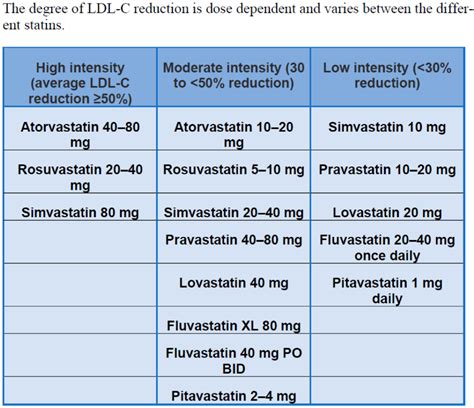
Statin medications are a class of drugs commonly prescribed to lower cholesterol levels in the blood, thereby reducing the risk of cardiovascular disease. They work by inhibiting the enzyme HMG-CoA reductase, which plays a central role in the production of cholesterol in the liver. By reducing the amount of cholesterol produced in the liver, statins help decrease the overall level of cholesterol in the blood. This reduction in blood cholesterol levels is associated with a lower risk of developing plaques in arteries, which can lead to heart attacks and strokes.
How Statins Work
The mechanism of action of statins involves several key steps: - **Inhibition of HMG-CoA Reductase:** This enzyme is crucial for the biosynthesis of cholesterol. By inhibiting this enzyme, statins reduce the liver's ability to produce cholesterol. - **Increase in LDL Receptors:** With less cholesterol being produced, the liver increases its production of LDL receptors. These receptors help remove LDL cholesterol (often referred to as "bad" cholesterol) from the bloodstream. - **Reduction in Blood Cholesterol Levels:** The combined effect of reduced cholesterol production and increased removal of LDL cholesterol leads to lower levels of cholesterol in the blood.Benefits of Statins
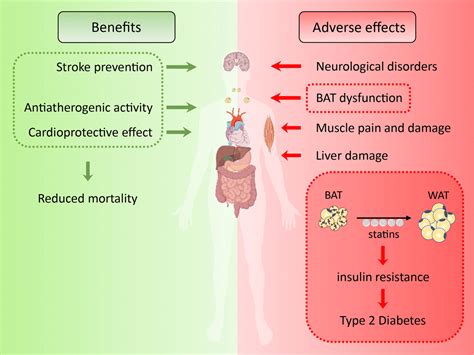
The benefits of statin therapy are well-documented and include:
- Primary Prevention: Statins are used to prevent the first occurrence of cardiovascular events in individuals at high risk.
- Secondary Prevention: For those who have already experienced a cardiovascular event, statins can help prevent further events.
- Reduction in Mortality: Statin therapy has been associated with a reduction in both cardiovascular and all-cause mortality.
- Stabilization of Plaques: Statins may help stabilize plaques in the arteries, reducing the risk of them rupturing and causing a heart attack or stroke.
Types of Statins
There are several types of statins available, each with its own efficacy and safety profile. These include: - **Atorvastatin:** One of the most commonly prescribed statins, known for its potent cholesterol-lowering effects. - **Simvastatin:** An older statin that is still widely used, often in combination with other medications. - **Rosuvastatin:** Known for its strong efficacy in lowering LDL cholesterol and raising HDL (good) cholesterol. - **Pravastatin:** Often used in patients who cannot tolerate other statins due to its relatively mild side effect profile.Potential Side Effects of Statins
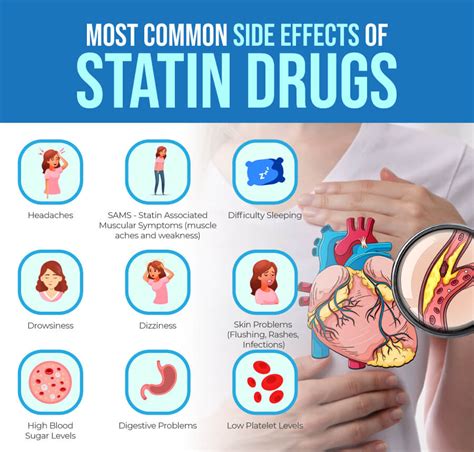
While statins are generally well-tolerated, they can cause side effects in some individuals. Common side effects include:
- Muscle Pain: This is one of the most common side effects, ranging from mild muscle soreness to severe muscle damage.
- Liver Damage: Statins can cause elevations in liver enzymes, indicating potential liver damage. Regular monitoring of liver function is recommended.
- Increased Risk of Diabetes: Some studies have suggested that statin use may be associated with an increased risk of developing type 2 diabetes.
Managing Side Effects
To manage potential side effects, individuals on statin therapy should: - **Monitor Liver Enzymes:** Regular blood tests can help identify any liver damage early. - **Report Muscle Pain:** Informing healthcare providers about any muscle pain or weakness is crucial for early intervention. - **Maintain a Healthy Lifestyle:** Diet and exercise can help mitigate some of the side effects and enhance the benefits of statin therapy.Lifestyle Modifications and Statin Therapy
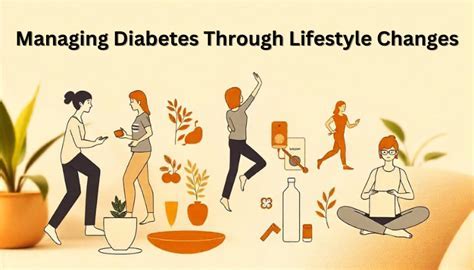
Lifestyle modifications are a crucial component of managing cholesterol levels and reducing cardiovascular risk. These include:
- Diet: Eating a heart-healthy diet that is low in saturated fats, trans fats, and cholesterol can help lower blood cholesterol levels.
- Exercise: Regular physical activity can help raise HDL cholesterol, lower triglycerides, and improve overall cardiovascular health.
- Weight Management: Maintaining a healthy weight can help lower blood cholesterol levels and reduce the risk of cardiovascular disease.
- Smoking Cessation: Quitting smoking can significantly reduce the risk of cardiovascular disease.
Importance of Compliance
Compliance with statin therapy is vital for achieving the desired outcomes. Individuals should: - **Take Medication as Prescribed:** Adhering to the prescribed dosage and schedule is crucial for maximizing the benefits of statin therapy. - **Attend Follow-Up Appointments:** Regular check-ups with healthcare providers can help monitor the effectiveness of the therapy and manage any side effects. - **Maintain Open Communication:** Informing healthcare providers about any concerns or side effects can help in adjusting the treatment plan as needed.Future Directions in Statin Therapy
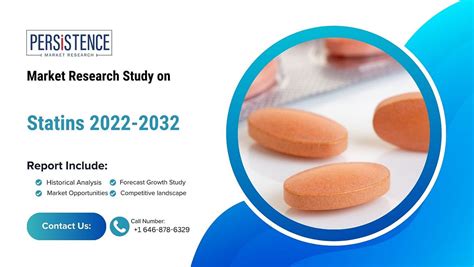
The future of statin therapy is evolving, with ongoing research focusing on:
- Newer Statins: Development of newer statins with improved efficacy and safety profiles.
- Combination Therapies: Investigating the benefits of combining statins with other cholesterol-lowering medications.
- Personalized Medicine: Tailoring statin therapy to individual patients based on their genetic profiles and risk factors.
Emerging Trends
Emerging trends in statin therapy include the use of: - **PCSK9 Inhibitors:** These are newer medications that can be used in combination with statins to further lower LDL cholesterol levels. - **Bempedoic Acid:** A recently approved medication that can be used in patients who cannot tolerate statins due to muscle-related side effects.What are statins used for?
+Statins are used to lower cholesterol levels in the blood, reducing the risk of cardiovascular disease.
How do statins work?
+Statins work by inhibiting the enzyme HMG-CoA reductase, which is involved in the production of cholesterol in the liver.
What are the common side effects of statins?
+Common side effects include muscle pain, liver damage, and an increased risk of diabetes.
In conclusion, statin therapy plays a vital role in the management and prevention of cardiovascular diseases. By understanding how statins work, their benefits, potential side effects, and the importance of lifestyle modifications, individuals can make informed decisions about their heart health. As research continues to evolve, the future of statin therapy holds promise for even more effective and personalized treatments. We invite readers to share their thoughts and experiences with statin therapy, and to take proactive steps towards maintaining a healthy heart. Whether through lifestyle changes, adherence to medication, or open communication with healthcare providers, every effort counts in the pursuit of better cardiovascular health.
